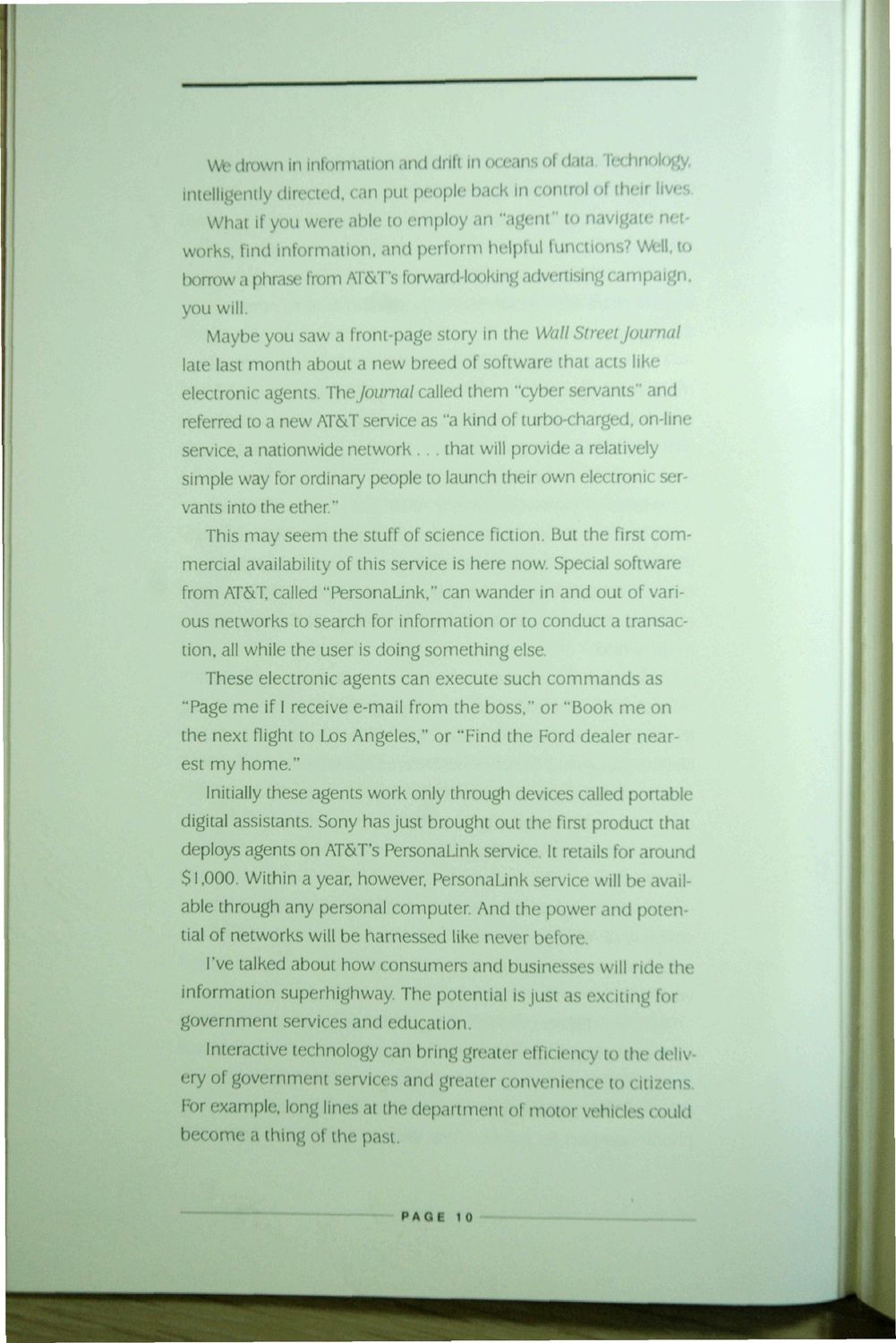| |
| |
Caption: Dedication - Grainger Engineering Library Symposium
This is a reduced-resolution page image for fast online browsing.

EXTRACTED TEXT FROM PAGE:
\Afe drown in information and drift in oceans of data. Technology, intelligently directed, can put people back in control of their lives. What if you were able to employ an "agent" to navigate networks, find information, and perform helpful functions? Well, to borrow a phrase from AT&T'sforward-lookingadvertising campaign, you will. Maybe you saw a front-page story in the Walt Street journal late last month about a new breed of software that acts like electronic agents. The Journal called them "cyber servants" and referred to a new AT&T service as "a kind of turbo-charged, on-line service, a nationwide network... that will provide a relatively simple way for ordinary people to launch their own electronic servants into the ether." This may seem the stuff of science Fiction. But the first commercial availability of this service is here now. Special software from AT&T, called "PersonaLink," can wander in and out of various networks to search for information or to conduct a transaction, all while the user is doing something else These electronic agents can execute such commands as "Page me if I receive e-mail from the boss." or "Book me on the next flight to Los Angeles." or "Find the Ford dealer nearest my home." Initially these agents work only through devices called portable digital assistants. Sony has just brought out the first product that deploys agents on AT&T's PersonaLink service. It retails for around $1,000. Within a year, however. PersonaLink service will be available through any personal computer. And the power and potential of networks will be harnessed like never before. I've talked about how consumers and businesses will ride the information superhighway. The potential is just as exciting for government services and education. Interactive technology can bring greater efficiency to the delivery of government services and greater convenience to citizens. For example, long lines at the department of motor vehicles could become a thing of the past. PAGE 10
| |